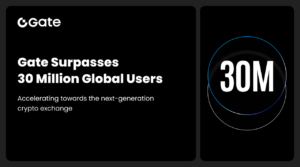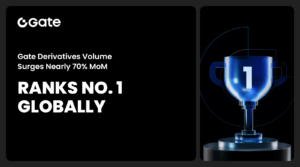
Transparent Candidate Selection with Blockchain
In today’s competitive job market, organizations and institutions strive to implement fair and unbiased candidate selection processes. However, traditional methods often lack transparency, leading to doubts about the integrity of the selection process. To address these concerns, the emergence of blockchain technology offers a promising solution. This article explores the concept of transparent candidate selection and examines how blockchain can revolutionize the way candidates are chosen.
Introduction
Selecting the right candidates is crucial for the success of any organization or institution. However, conventional methods of candidate selection can be prone to biases, favoritism, and lack of transparency. This often leads to discontentment among applicants and undermines the credibility of the selection process. To overcome these challenges, transparent candidate selection with blockchain has gained attention as an innovative approach.
Understanding Transparent Candidate Selection
Transparent candidate selection refers to a selection process that provides a clear and comprehensive view of the evaluation criteria, decision-making process, and the data involved. It ensures that all stakeholders have access to relevant information, promoting fairness, accountability, and trust. By leveraging blockchain technology, organizations can revolutionize their candidate selection methods.
Benefits of Transparent Candidate Selection
- Enhanced Trust: Transparent candidate selection instills trust among candidates by providing visibility into the selection process. When applicants can see how decisions are made and understand the evaluation criteria, they feel that their applications are being treated fairly.
- Positive Reputation: Organizations that implement transparent candidate selection gain a positive reputation. This attracts top talent who value fairness and accountability in the selection process. A transparent approach demonstrates the organization’s commitment to ethical practices and equal opportunities.
- Identification of Biases: Transparent candidate selection helps organizations identify and rectify biases in the selection process. By having access to all the relevant data and information, organizations can analyze patterns and detect any inconsistencies or discriminatory practices. This allows for more objective decision-making.
- Accountability and Fairness: Transparency ensures accountability in the selection process. Stakeholders, including candidates, can review the process and raise concerns if needed. This promotes fairness and reduces the chances of favoritism or unfair practices.
- Improved Diversity and Inclusion: Transparent candidate selection contributes to diversity and inclusion efforts. When organizations prioritize transparency, they attract a diverse pool of applicants who feel confident in the selection process. By eliminating biases, organizations can create a more inclusive and equitable working environment.
- Efficient Feedback Mechanism: Transparent candidate selection enables effective feedback mechanisms. Candidates can receive detailed feedback on their applications and understand the reasons behind the selection decisions. This helps candidates in their professional growth and development.
Blockchain Technology and its Role in Transparent Candidate Selection
- Immutable and Transparent Records: Blockchain provides an immutable and transparent ledger where candidate data and interactions are recorded. Each step, from application submission to interview feedback, is stored in a decentralized and tamper-proof manner, ensuring transparency and preventing data manipulation.
- Verified Credentials and Qualifications: With blockchain, candidates can securely store their verified credentials, qualifications, and certifications. These records are authenticated and accessible to potential employers, eliminating the need for time-consuming and unreliable background checks.
- Decentralization and Trust: Blockchain operates on a decentralized network where no single entity has control over the candidate selection process. Consensus algorithms and cryptographic mechanisms ensure the integrity and trustworthiness of the information stored on the blockchain, fostering a fair and unbiased selection process.
How Does Blockchain Work?
Blockchain operates as a distributed ledger, where each transaction or data entry is recorded in a block. These blocks are cryptographically linked to form a chain, ensuring the integrity and security of the data. The decentralized nature of blockchain means that no single entity has control over the entire system, reducing the risk of manipulation.
Advantages of Blockchain for Candidate Selection
- Immutable and Transparent Records: Blockchain creates an immutable and transparent ledger of candidate data and interactions. Every action, such as submitting qualifications, undergoing assessments, or receiving feedback, is recorded on the blockchain, ensuring transparency and preventing tampering or fraudulent activities.
- Verified Credentials and Background Checks: Blockchain can store verified credentials and certifications securely. Candidates’ educational qualifications, professional certifications, and employment history can be recorded on the blockchain, providing instant and reliable verification to employers, eliminating the need for time-consuming and manual background checks.
- Enhanced Security and Data Protection: Blockchain ensures the security and privacy of candidate data through robust encryption and decentralized storage. Personal and sensitive information is securely stored on the blockchain, reducing the risk of data breaches or unauthorized access.
- Elimination of Intermediaries: Blockchain enables direct peer-to-peer interactions, eliminating the need for intermediaries such as recruitment agencies or background verification services. This reduces costs, simplifies the hiring process, and accelerates candidate selection.
- Smart Contracts and Automation: Smart contracts on the blockchain can automate various steps in the candidate selection process, such as application screening, scheduling interviews, and issuing offers. This reduces manual effort, streamlines the process, and ensures compliance with predefined rules and criteria.
Implementing Transparent Candidate Selection with Blockchain
Integrating blockchain into candidate selection requires careful planning and execution. By leveraging its inherent features, organizations can overcome the challenges of traditional selection processes and achieve a more transparent and efficient system.
Ensuring Data Integrity and Security
Blockchain ensures data integrity by storing information in an encrypted and decentralized manner. Each transaction is cryptographically linked to previous ones, making it virtually impossible to alter or manipulate records without detection. This ensures that candidate data remains secure and tamper-proof.
Improving Transparency and Trust in the Selection Process
One of the key advantages of blockchain is its transparency. All stakeholders, including candidates, can view the entire selection process, ensuring fairness and accountability. Additionally, blockchain enables the creation of auditable logs, providing an immutable record of every step in the selection process.
Enhancing Efficiency and Reducing Bias
Blockchain-based candidate selection systems can streamline the process and reduce administrative burdens. Smart contracts can automate tasks such as document verification, background checks, and qualification assessments, ensuring efficiency and reducing human error. By removing human biases and subjectivity, blockchain promotes a more objective selection process.
Case Studies of Transparent Candidate Selection with Blockchain

Several organizations and institutions have already embraced transparent candidate selection using blockchain technology. These case studies demonstrate the potential and effectiveness of this innovative approach.
Company A’s Experience with Blockchain-based Selection
Company A, a multinational corporation, implemented a blockchain-based candidate selection process for their internship program. By leveraging blockchain’s transparency, they were able to attract a diverse pool of applicants and ensure fair evaluation. The immutable nature of blockchain also provided an auditable trail, helping them address any concerns or disputes effectively.
Government Agency B’s Successful Implementation
Government Agency B, responsible for public sector recruitments, faced challenges of bias and lack of transparency. By adopting a blockchain-based candidate selection system, they achieved a high level of transparency, ensuring equal opportunities for all applicants. This move resulted in increased public trust and confidence in the selection process.
Future Implications and Potential Challenges
The implementation of transparent candidate selection with blockchain is still in its early stages. However, it holds significant potential for transforming candidate selection practices in the future. Nevertheless, certain challenges need to be addressed, such as privacy concerns, data protection, scalability, and adoption across industries.
The Evolution of Transparent Candidate Selection
As blockchain technology continues to evolve, so will the methods of transparent candidate selection. New innovations and advancements will enhance the efficiency, accuracy, and fairness of the selection process. It is crucial for organizations and institutions to stay updated with these developments to remain competitive.
Addressing Privacy Concerns and Data Protection
While blockchain offers enhanced security and control over personal data, privacy concerns still exist. Striking a balance between transparency and privacy is essential to ensure candidate data is adequately protected. Organizations must adopt robust privacy protocols and obtain consent from candidates regarding the usage of their data.
Conclusion
Transparent candidate selection with blockchain has the potential to revolutionize the way organizations and institutions choose candidates. By leveraging blockchain’s transparency, immutability, and efficiency, organizations can build trust, eliminate biases, and attract top talent. However, careful planning, addressing privacy concerns, and staying updated with advancements in blockchain technology are vital for successful implementation.
FAQs
1) Can blockchain eliminate all biases in candidate selection?
While blockchain technology can significantly reduce biases in candidate selection, it cannot eliminate them entirely. Biases may still exist in the design of evaluation criteria or the interpretation of data. However, blockchain’s transparency helps identify and rectify biases more effectively.
2) Is transparent candidate selection only suitable for large organizations?
No, transparent candidate selection with blockchain can benefit organizations of all sizes. It promotes fairness and accountability, regardless of the organization’s scale, and helps build a positive reputation.
3) Will implementing blockchain-based candidate selection be costly?
Initially, there may be implementation costs associated with adopting blockchain technology. However, in the long run, the efficiency gains and reduced administrative burdens can offset these costs.
4) Can candidates trust the security of their personal data in a blockchain-based selection process?
Yes, blockchain ensures the security and integrity of candidate data through encryption and decentralized storage. Candidates have greater control over their data and can monitor its usage, enhancing trust in the system.
5) How can organizations address privacy concerns in transparent candidate selection?
Organizations should establish clear privacy policies, obtain informed consent from candidates regarding data usage, and adopt encryption and anonymization techniques to protect sensitive information.
I have worked in the cryptocurrency industry for over 5 years and have written numerous articles on the subject. I am well-versed in all aspects of cryptocurrencies and blockchain technology, and am an expert in the field.








